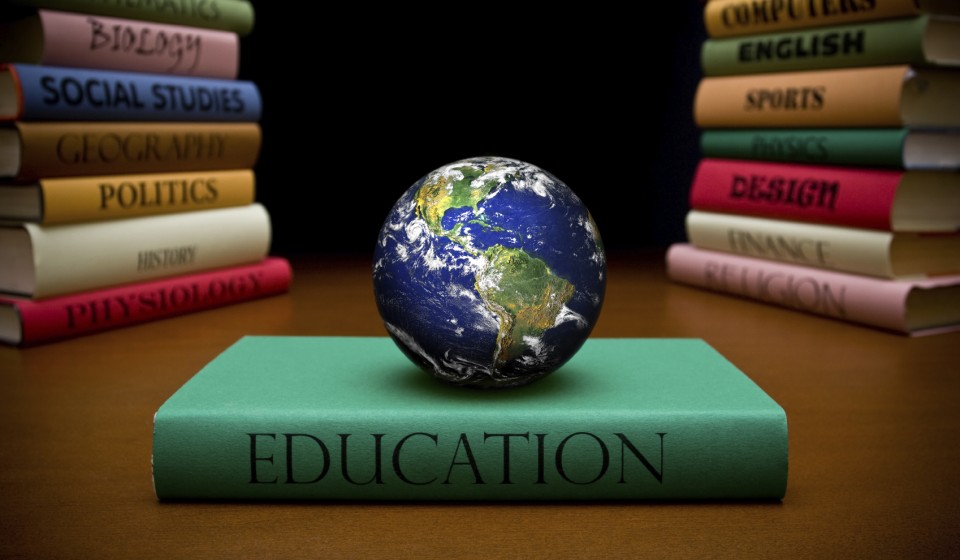REDEFINING EDUCATION FOR THE MODERN WORLD
Education has always been a vital aspect of human development, empowering individuals with knowledge and skills to navigate the world. However, in today’s rapidly changing landscape, traditional learning methods and systems are facing unprecedented challenges. As we progress further into the 21st century, it becomes increasingly clear that we need to redefine learning to meet the demands of the modern world.

The world is experiencing a digital revolution, with technology reshaping every aspect of our lives. In this digital era, access to information has become almost limitless, and the way we communicate and interact has drastically evolved. To remain relevant and effective, education must adapt to this new reality, embracing innovative approaches that prepare individuals for the complexities of the modern world.
One of the key components of redefining learning for the modern world is shifting the focus from rote memorization to critical thinking and problem-solving skills. In an age where information is readily available at our fingertips, memorizing facts and figures has become less important than developing the ability to analyse, evaluate, and apply knowledge. By nurturing critical thinking, students are better equipped to navigate the vast sea of information and make informed decisions.
Moreover, the modern world demands a multidisciplinary approach to learning. Complex challenges often require a combination of skills and knowledge from different domains. To prepare students for this reality, education systems must promote interdisciplinary studies, encouraging students to explore diverse fields and understand the connections between them. By breaking down traditional subject silos, we can foster creativity, collaboration, and holistic thinking among learners.
The rise of technology also offers unparalleled opportunities to transform the learning experience. Online platforms, virtual reality, artificial intelligence, and other emerging technologies are revolutionizing the way we access and consume information. Blended learning models, which combine traditional classroom instruction with online resources, allow for personalized and self-paced learning. Adaptive learning platforms can analyze student data to tailor instruction to individual needs, promoting a more efficient and engaging learning experience.
Additionally, redefining learning for the modern world involves cultivating essential skills for success in the digital age. While foundational knowledge remains important, skills such as digital literacy, information literacy, communication, collaboration, and adaptability are now indispensable. Education systems need to incorporate these skills into their curricula and provide opportunities for students to develop them through real-world applications and hands-on experiences.
Learning Beyond The Classroom
Beyond the classroom, learning should extend into the community and the world at large. Experiential learning, internships, service-learning projects, and global collaborations can bridge the gap between theory and practice, fostering a deeper understanding of real-world challenges and nurturing a sense of global citizenship. By encouraging students to engage with their communities and actively participate in solving problems, we empower them to become agents of positive change.
Furthermore, the traditional notion of education as a linear process with a fixed endpoint is no longer sufficient. Lifelong learning has become essential in a world where knowledge and skills quickly become outdated. To foster a culture of lifelong learning, education systems should promote curiosity, adaptability, and a growth mindset. By equipping individuals with the ability to continuously learn and evolve, we ensure their readiness for the ever-changing demands of the modern world.

Redefining learning for the modern world is not a task that falls solely on educators but requires a collaborative effort from policymakers, businesses, parents, and society as a whole. Investment in education infrastructure, teacher professional development, and equitable access to quality education are crucial to ensure that no one is left behind in the face of rapid technological advancements.
In fact, the changing world has a lot of effects on several aspect of human life, even traditional educational models are being challenged to keep pace with evolving technological advancements, shifting job market demands, and the increasing need for lifelong learning. As a result, there is a growing consensus among educators, policymakers, and industry leaders that learning itself must be redefined to equip individuals with the skills and knowledge necessary to thrive in the modern world.
Highlights of key strategies and approaches that can reshape education.
- Embracing Personalized and Adaptive Learning
Redefining learning involves moving away from the one-size-fits-all approach and embracing personalized and adaptive learning models. Technology plays a crucial role in enabling personalized learning experiences tailored to individual needs, interests, and learning styles. Adaptive learning platforms utilize data analytics and artificial intelligence algorithms to provide customized learning pathways, allowing learners to progress at their own pace and focus on areas where they need the most support.
- Fostering Critical Thinking and Problem-Solving Skills
The modern world demands individuals who can navigate complex challenges and think critically. Redefining learning requires a shift from rote memorization and standardized testing towards a curriculum that emphasizes critical thinking, problem-solving, creativity, and collaboration. Educators must create opportunities for students to engage in real-world problem-solving activities, interdisciplinary projects, and experiential learning, enabling them to apply knowledge in practical contexts.
- Cultivating Digital Literacy and Technological Fluency
In the digital age, technological literacy is essential for success in nearly every field. Redefining learning involves integrating digital literacy and technological fluency into the curriculum. Students should be equipped with the skills to navigate and evaluate digital information, leverage digital tools for productivity and creativity, and understand the ethical implications of technology. This includes promoting cybersecurity awareness, data privacy, and responsible digital citizenship.
- Encouraging Lifelong Learning and Adaptability
Redefining learning goes beyond formal education and emphasizes the importance of lifelong learning. In the modern world, individuals must continually adapt to rapid changes and acquire new skills to remain relevant in their careers. Educational institutions need to foster a culture of lifelong learning by equipping students with meta-learning skills, such as self-directed learning, information literacy, and the ability to learn independently. This involves teaching students how to set learning goals, leverage online resources and networks, and develop strategies for continuous growth and adaptation.
- Promoting Global and Cultural Competence
Globalization has connected the world in unprecedented ways, requiring individuals to have a global mindset and cultural competence. Redefining learning involves promoting multicultural understanding, intercultural communication skills, and empathy towards diverse perspectives. Educators should incorporate global issues, cross-cultural collaborations, and international experiences into the curriculum to prepare students to thrive in a diverse and interconnected world.
In conclusion
redefining learning for the modern world is an imperative that cannot be ignored. By shifting the focus from memorization to critical thinking, embracing interdisciplinary approaches, harnessing technology, fostering essential skills, promoting experiential learning, and embracing lifelong learning.
Picture Credit:
Avanse | https://www.avanse.com/blog/importance-of-education-to-build-a-successful-career




